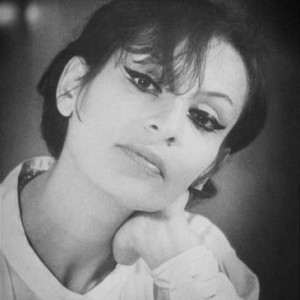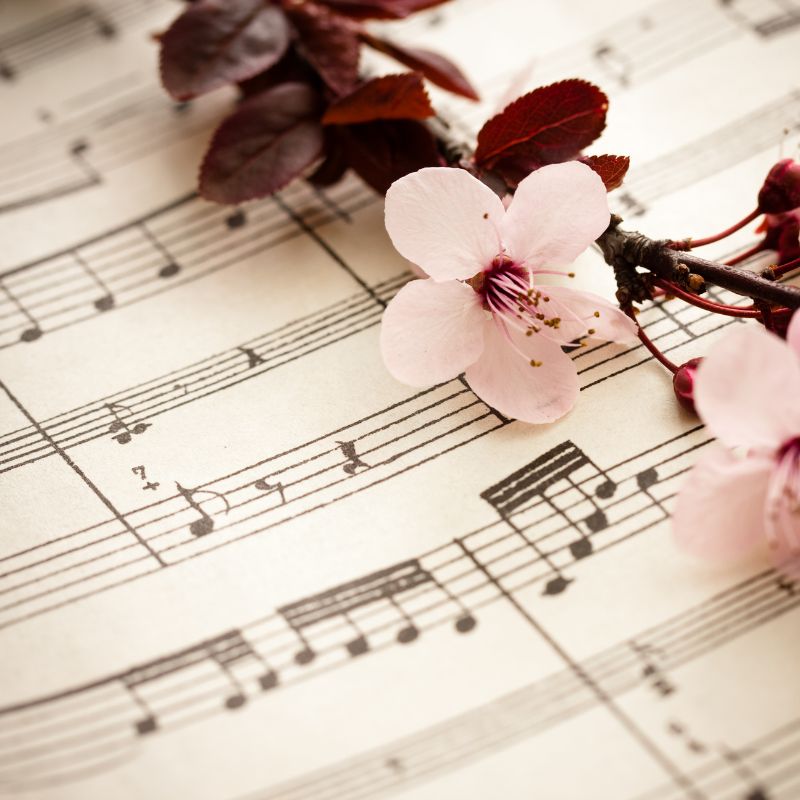Did you know that the word printemps comes from the old French prins, which means premier (first), and temps (time)?
Yes, springtime is here: the sun is shining, the sky is blue, the birds are chirping, the flowers are blooming, and the idea of sipping a cool drink on a terrasse is getting more and more tempting! What a lovely time of year!
Chaque printemps, I feel like my energy is renewed with the promise of a new beginning, a new chapter of life. I also love to surround myself with beautiful and inspiring music, which I would like to share with you today.
Here are our 5 picks for learning French with songs this spring
1. Le printemps élégant de Boismortier
Joseph Bodin de Boismortier (1689–1755) was a French baroque composer who lived during the Rococo era of Louis XV and upheld the French tradition, composing music of beauty and sophistication that was widely appreciated by the French musical public. His speciality was instrumental music, cantatas, opéra-ballets, and vocal music.
Boismortier was one of the first composers to have no patrons: having obtained a royal license for engraving music in 1724, he made enormous sums of money by publishing his music for sale to the public. He was prolific: his first works appeared in Paris in 1724, and by 1747 he had published more than 100 works in various vocal and instrumental combinations.
Boismortier’s Les quatre saisons were published in 1724, one year before Vivaldi’s famous Four Seasons. Le printemps is my favourite part of this beautiful cantata. It is an ode to love, full of bird songs, shepherdess, French elegance, and musical ornementation!
Watch the rendition of the aria Règne amour by American soprano Marguerite Krull and graceful dancer Caroline Copeland, both in period costume and accompanied by the Brooklyn Baroque Ensemble. As requested by the composer, this aria must be performed gracieusement.
I also invite you to listen to another lovely rendition of the entire cantata produced by Le chant du monde and its remarkable French artists in 1986.
2. Le prrrintemps rrromantique d’Édith Piaf
If you know the song La vie en rose, you must also know Édith Piaf (1915–1963), its very famous performer! Piaf was a French cabaret singer, songwriter and actress who became widely regarded as France’s national chanteuse. She was known for her powerful, husky, emotive voice as well as her chaotic life.
At 15, Edith earned a living in Paris singing in the streets and in seedy cabarets. As luck had it, a proprieter spotted her and launched her career, billing her as La Môme Piaf (Parisian slang for “The Little Sparrow,” from which she took her stage name). The name suited her tiny, frail figure. With a voice that wrung out every last drop of emotion, the waif with the heartbreaking voice took France by storm. She was un petit bout de femme with a tremendous voice!
My paternal grandparents, both French, apparently heard her performing live in the streets of La ville lumière. They always had fascinating stories about their life in pre and post-war Paris, way before they moved to Canada.
Listen to her performance of Enfin le printemps!, a passionnate waltz about long-awaited springtime, love, lily of the valley, lilacs, freshly cut grass, silk dresses, and naked shoulders. Ouh là là!
3. Le printemps morose de Barbara

Springtime doesn’t necessarily mean happy time.
Monique Andrée Serf (1930–1997), aka Barbara, was a French singer whose stage name was borrowed from her grandmother, Varvara Brodsky, a native of Odesa, Russian Empire (now Ukraine).
Born in Paris to a Jewish family, Barbara was ten years old when she had to go into hiding during the German occupation of France in World War II. After the war ended, a neighborhood professor of music heard her sing and took an interest in helping her develop her talents. She was given vocal lessons and taught to play the piano, but unfortunately had to give up her musical studies to help the family make a living and sang at “La Fontaine des Quatre Saisons,” a popular cabaret in Paris.
Barbara generally dressed in black as she sang melancholy songs of lost love. She used to perform Edith Piaf, Jacques Brel and Georges Brassens’ songs in Parisian cabarets before starting to compose her own songs, which provided the real breakthrough for her musical career.
For Barbara, springtime isn’t all roses. On the contrary, when lilacs are in bloom, she reflects with ironic wit on the many sorrows life and love have brought on her.
Listen to her brilliant performance of Le temps des lilas.
4. Le printemps fermier de Ricet Barrier
For the farmers, springtime means going back to work after the winter months during which many of them have the chance to take a well-deserved rest. Every spring, my uncle Ivan from Ottawa (bless him!) makes sure to remind me of the hilarious chanson française, Isabelle, v’là l’printemps! (Isabelle, spring is comin’!).
Are you ready for a completely different musical atmosphere? Let me introduce you to the comedic world of Ricet Barrier (1932–2011)! French entertainer, comedian-musician and actor, Ricet was very famous for his humoristic compositions and ability to change his voice and accent according to the tone of his songs.
Despite the fact that some of my maternal family members are successful farmers, I have never worked on a farm. Ricet’s poor Isabelle, however, has to push the tractor, milk the cows, bring the anvil to shoe the horses, hold the bull, and clean the pig troughs! Her hard work never seems to be enough for Farmer Ricet as he keeps calling her a fainéante (idler)!
Listen to Ricet’s side-splitting performance of Isabelle, v’là l’printemps!
5. Le printemps rêveur de Debussy
Claude Debussy (1862–1918) is one of my favourite French composers. He and Maurice Ravel were the most prominent figures associated with impressionist music. Think about Monet’s portrait, but in music! He was among the most influential composers of the late 19th and early 20th centuries, and his use of non-traditional scales and chromaticism (indian/asian music sounds, very exotic for the time!) influenced many composers who followed. Debussy’s music is noted for its sensory content and frequent usage of nontraditional tonalities.
I have always loved to perform French classical music. Not only because it is sung in my mother tongue, but also because les mélodies françaises create a luscious, mysterious and nostalgic atmosphere which is just so enjoyable to dive into!
Listen to my performance of Voici que le printemps by Debussy, with fantastic pianist and good friend Ted Ganger.
Isabelle
As a native Québécoise, born to a Franco-Belgian family, now living in Nyon with her two children, Isabelle is no stranger to the expat reality! Trained as a professional opera singer, her passion for arts and languages led her to become an ambassador of the French language & francophone culture, i.e. a French Teacher!
She founded Prêt à Parler in January 2015. Since then she's been hard at work helping English-speaking learners from the international community of Suisse romande make French part of their everyday life! Prêt à Parler's mission is based on what Isabelle does best: helping busy professionals and parents improve their French language skills by providing a high quality, eco-friendly, fun, no-nonsense approach to learning French online!







0 comments